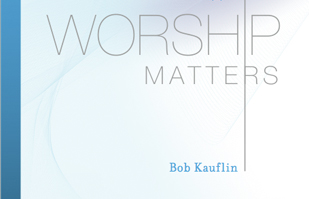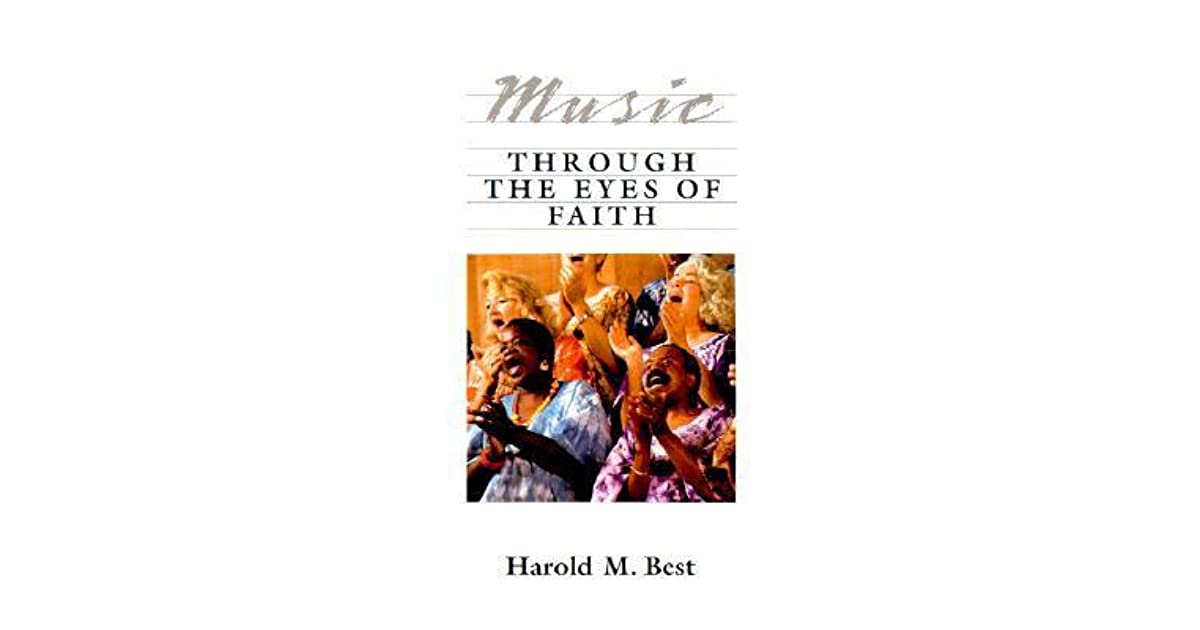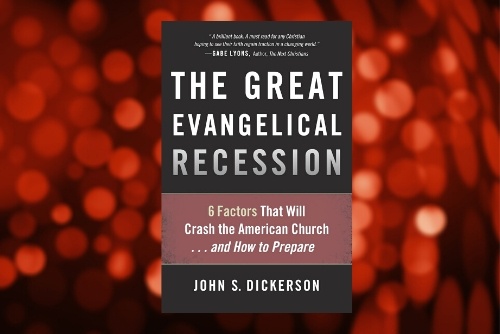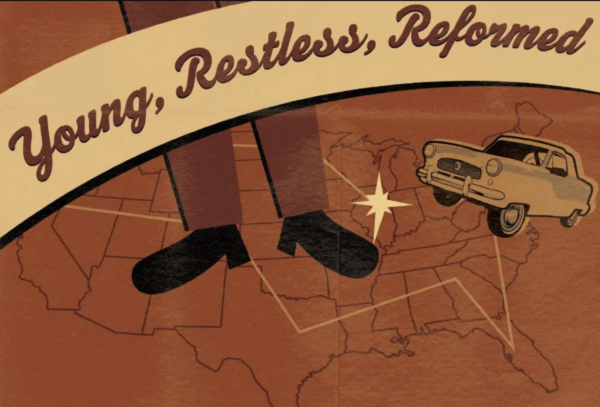
Music & Worship
Sometimes I envy the wicked.
This is the statement of Asaph in Psalm 73. I absolutely love this Psalm, and it has been a source of encouragement to me several times in the last 10 years.
But as for me, my feet were almost gone; my steps had well nigh slipped. For I was envious at the foolish, when I saw the prosperity of the wicked.
Asaph was discouraged. Maybe he was tired of doing what was right as he saw people around him who couldn’t care less. Maybe he had trouble paying his bills because he was honest while others used dishonesty to amass ten times as much money as they needed. I don’t know his specific situation, but I can certainly identify with his feelings.
They are not in trouble as other men; neither are they plagued like other men. Therefore pride compasseth them about as a chain; violence covereth them as a garment. Their eyes stand out with fatness: they have more than heart could wish.
I look out the windows of my conservative Christianity and see a whole lot of people having a whole lot of fun. Especially in the music and musical performance world.
Even “Christians” are getting into the act. Is it just me, or does it seem like half the pop stars today come from Christian families? Some reject their Christian roots, others tattoo them on their bodies. More and more Christians are trying out for American Idol-esque shows, seeking professional recording contracts, and figuring out ways to take their “thing” mainstream.
What exactly is “mainstream”? Mainstream is what the world loves. Mainstream is the pop culture. Mainstream is the entertainment industry. Mainstream is what makes the most money from the most amount of people.
Behold, these are the ungodly, who prosper in the world; they increase in riches.
I’m not denying that there are people of incredible God-given ability in the secular world. In fact, that is often what initially attracts those of us who have a desire to perform at a high level. I admire the talent of certain singers or instrumentalists in the secular arena because of their technical expertise and the obvious work they put into perfecting their instrument. I don’t believe this by itself is a problem.
But then comes the motivation to either imitate (if it was excellent) or improve (if we think we can do better). And for me, my heart wonders why I can’t go there, do that, sing this, perform like so-and-so. “After all,” my heart whispers, “You can hit that high note, sing those harmonies, emote the meaning just as well as that guy making millions.”
I hear someone on the radio or television or YouTube and I am tempted to envy. Not because I dislike that particular person, but because down deep inside, I feel like I have been denied an opportunity to show the world what I could do if I only had the chance.
Did you catch that? Did you catch the little sneaky innocent-sounding trap-word? Show whom?
The world. Show the world of YouTube, American Idol, the Sing-off, you name it.
Verily I have cleansed my heart in vain, and washed my hands in innocency. For all the day long have I been plagued, and chastened every morning.
Maybe you are one of those people who can watch some of these things and never consider how well you would measure up. That’s fine. That’s probably like me watching Kobe Bryant! But for musicians like me, there is something inside that motivates us to measure ourselves by the highest possible standard, and we cannot help but notice the quality (or lack thereof) of the music that is being produced around us. Watching a good performer makes us want to perform as good or better. We are motivated to practice more, sing higher, arrange better, perform truer. It is just part of what drives us.
We live in a world where 15 minutes (or more!) of fame is only one YouTube video away.
Until I went into the sanctuary of God; then understood I their end.
Have you ever ridden a rollercoaster that had not been finished? What if at the end of the ride, the tracks just simply . . . ended, 100 feet in the air? It wouldn’t matter how thrilling that ride was for the first 90 seconds. It wouldn’t matter how many loops, twirls, upside-down twisty-twists that coaster offered. You would be a fool to ride it.
So it is with the person who invests their life in this world. Asaph doubted for a while. Asaph was only looking at his current situation. He was comparing himself and his more difficult road with the people having fun on the coaster.
But then he understood: riding the coaster means destruction.
Hopefully, you can tell that it isn’t excellence that I am targeting. Doing the best job we possibly can with what God has given us is not a bad thing, of course! I’m talking about attaching ourselves to this world. I’m talking about measuring our success by this culture’s standards of dollars made, likes given, or videos hit.
Friends, this world has nothing permanent to offer. The applause ends. The record deals are hot for mere months. The tours finish. The voices fade. The TV seasons get canceled. There is always someone newer, younger, more attractive, and more charismatic around the corner.
How foolish are we as Christians to attach our lives to this carousel? You pay your money, you go in circles for a while with the music playing, and then the ride is over. Then what have we to show for it?
The number of Christians, even some who I know well, who are investing in this world’s entertainment culture astounds me. I didn’t say they were compromising their moral standards. In this particular article I’m not even bringing up styles and their appropriateness for believers. I’m not talking about being a witness where ever you are (insert tired sigh here). I’m just talking about Christians who are investing themselves in this world’s system. They are deriving their measure of success or failure based on the entertainment culture’s standards. How sad. How foolish. How wasteful. How temporary.
Thus my heart was grieved, and I was pricked in my reins. So foolish was I, and ignorant: I was as a beast before thee.
Oh the conviction of the Lord! Asaph felt so foolish! He compares himself to an animal, so ignorant he feels. And how ignorant are we indeed, when we begin to take the world’s priorities as our own!
Whom have I in heaven but thee? and there is none upon earth that I desire beside thee. My flesh and my heart faileth: but God is the strength of my heart, and my portion for ever.
At first glance it appears that Asaph is speaking of the fact of his frailty and eventual death. But I believe there is more here. He has just shown us his doubts. He has written about his heart. His flesh was weak: he envied the wicked, even though he knew he shouldn’t. His heart let him down: he felt like he was keeping himself clean for nothing.
What is the solution? What is the answer? God is enough. God is enough! Christian, will we trade the smile of God for the transient, disingenuous applause of the world? Fellow Christian musicians, will we allow ourselves to be entranced by the cadence of the world instead of being

Reviews
Here’s just a few observations about this book.
This is not a book about music. This is a book about worship.
It is thoughtful, attempts to be biblical, and can be of great benefit to the reader.
When it comes to music philosophy, much is assumed and presupposed. Kauflin stands on the shoulders of Harold Best quite a bit.
Bob’s Background
He gives a summary of his background in worship and music, which I appreciated. A few years after becoming a Christian out of Catholicism, he began touring with GLAD for 8 years. They traveled to an extreme variety of churches that spanned nearly every Christian denomination.
He makes excellent points about the importance of doctrine in our lives. Every Christian is a theologian, he states.
Key points on Kauflin’s music philosophy:
- Sets up straw man repeatedly by representing conservatives as “one-kind” or “one-style” advocates. This makes it easy to refute, as God is “too big” to be represented by one style. page 104-105 etc
- In a 250+ page book, perhaps 10 pages are dedicated to dealing with what should be a vital issue: the nature of styles of music in communicating biblical truth. This fact alone is telling because he assumes any style of music can be a valid tool for conveying truth. Those who hold up this book as a defense of total musical pluralism are holding up an echo of Harold Best. this book assumes Best.
- to me, the biggest negative about the book is the impression given of unimportance of the discerning musical style in determining appropriateness. By dismantling a few straw men and omitting damaging correllaries from his own observations, he gives the impression that the issue of musical style is settled and deserves no more consideration.
- He follows Best in declaring that any offering of worship is made acceptable because of Jesus. The impression is given then that all offerings are equally valid. Is this really true?
- Kauflin’s stance on music philosophy is really Harold Best in Kauflin’s own words. This isn’t a criticism of Kauflin, as we all stand on the shoulders of others. But if you deal with Best, you have dealt with Kauflin.

Music & Worship, Reviews
Music through the Eyes of Faith by Harold M. Best (Harper Collins, 1993) is not a heavy read, but it’s not light either; the author is obviously well trained in both music and logical thinking. The book is a little dated (1993), but in terms of foundational philosophy, it is an excellent example of what a thinking, scriptural philosophy in support of Christian pop would have to be.
Tone
I was relieved because the tone of the book is excellent, the spirit gracious. A pleasant spirit can be lacking in books going either direction. I never once felt insulted, patronized, or irritated because of the personality. The author did an excellent job maintaining a Christlike spirit throughout.
Part of my relief might have been due to the fact that the author is classically trained and shows an obvious love for the classics. I tire of the rock vs. classical straw man debate, and he avoided this. In fact, he insists on the necessity of classical music in our lives.
Personal Introduction Holds Keys
We can learn much from his personal introduction. When Best was a young person, he learned to enjoy many styles of music. From classical music to boogie-woogie and swing, he “fell in love with this music, not even guessing it could be separated out from Bach and Brahms and Beethoven. . . . To [him], it was all one enchanting world” (2).
This would all change as he encountered the thinking that there was spiritually “good” and “bad” music. The good music was good because it resided in the church, and the bad music was bad because it was secular. He writes that he began to live two lives, one in public with the good music of the church and the “Masters” (the classics), and one in private while “not so sure that what I had once so naturally embraced was to be trusted” (3).
I winced at this point, because Best’s experience from an early age was molded by a false dichotomy. Musical conservatives such as myself do not argue that moral content of music is defined by where it resides, as though it is a church vs. secular debate.
Through spiritual brokenness he “began to put these worlds back together and to reenter once more the delights of early childhood” (4). He goes on to describe, in colorful terms, the vast world that is music. He often provides these beautiful descriptions of nature and music throughout the book, and I many times found myself quite caught up in the descriptions, although I disagreed with his conclusions.
From this point, the book takes on the purpose of justifying the “plurality” of musical styles for use in sacred contexts. He states clearly in the introduction, “I [will] make a defense of musical pluralism. . . . Music is part of a divinely ordained world of relativism” (8). In fairness, he maintains that this relativism has nothing to do with moral relativism. He attempts to keep these two kinds of relativism separate with varying success.
Musical Pluralism Is Godlike
Best’s idea of musical pluralism is both simple and complex. It is simple in that he uses the variety of creation, both in original creation and as it stands today, as the primary basis to accept a wide variety of music in our lives.
He describes various aspects of creation, such as strawberries. No two strawberries are alike. God created both beautiful flowers and “ugly” insects. What right do we have to say one is better than the other? Best writes, “We often choose parts of the creation the way we choose art and music: some we like, some we don’t. . . . We may have no more aesthetic right to say that a sunset is more beautiful than an artichoke then we do to say that classical music is more beautiful than jazz or Gothic preferable to Bauhas” (25).
His many statements about the need to draw from many music styles and cultures sound good. “They can drink in from as many sources as possible, giving thanks for the rich world of musical creativity” (36). Another typical statement is this: “Does God have any taste? Or is he a Creator whose sense of rightness and beauty are so complete that we will have a more comprehensive way of integrating all of the supposed anomalies and contradictions in human creativity? Is there a way for us to see if or how the music of Eric Clapton or Beethoven can find a place among the musics of Japanese kabuki, the Belinese gamelan, the songs of Stephen Foster, an anonymous dreamer of songs in Africa, J. S. Bach, and Blind Lemon Jefferson” (24).
The Great Leap
In the case of his arguments for musical pluralism, there is an elephant in the room: the concept of sin. I waited through three philosophy-filled chapters for him to address how we should deal with sin’s impact on creation in music and culture. He seems to treat the very concept of culture as a neutral thing, like strawberries, trees, or a sunset. He speaks of artists creating variety but never once mentions the possibility of an artist creating perversion.
He touches on the entrance of sin into creation in one brief section early in the book by encouraging the reader not to concentrate on the fall.
Perhaps we should ask this question instead: As horrible as the Fall is, do we make too much of it by trying to guess what it is all by itself, instead of talking about how God works within it and helps us overcome it, even while we continue to sin (17)?
A few paragraphs later, he attempts to lay to rest any concern about sin in creation by stating that Jesus used the music of His day for weddings, feasts, and everyday life. Therefore, it was not to be shunned.
This conclusion misses the point. The point is not that all music is equally stained by sin. The point is that somewhere the effect of sin is evident. Is a rotten strawberry, an animal with rabies, or toxic pollution God’s creation? Can there not be music that is the equivalent to these examples?
Best tells us that cultures, and accordingly musical styles, are equal (63)and that the value systems within those cultures should inform us. But are all aspects of culture morally good?What about the culture of the Nazis? What about the Goth culture? What about sodomite culture? Are these not perversions of what God created?
Man, because of sin, perverts what God has made. Satan delights in changing God’s creation. For all the beautiful analogies and word pictures Best uses to describe the wonderful variety in the world, he never once mentions the perversion of creation. This absence illustrates to me a huge lack in his argumentation. A biblical philosophy of music simply must take the sinfulness of man into account. Best basically ignores this. By ignoring this vital element at the inception of his philosophical base, he is able to make an otherwise logical case for accepting any musical style from any culture.
This omission is unfortunate, and to a musical conservative like me, it discredits the rest of the book. He presents two plus two and comes up with three. All the rest of the math might be correct, but because of this faulty first step, his conclusions will be wrong.
Music Is Unable to Be a Moral Agent
If musical pluralism is one main thrust of the book, the other is that music is unable to carry propositional truth and, as such, is incapable of expressing morality. Although he spends far less space on this claim, this concept is just as paradigm changing as musical pluralism.
His reasoning is this: music is unable to express moral direction. He writes, “What is true of meat and idols can be equally true of music” (55). “From here on out, I take the position that, with certain exceptions, art and especially music are morally relative and inherently incapable of articulating, for want of a better term, truth speech. They are essentially neutral in their ability to express belief, creed, moral and ethical exactitudes, or even worldview” (42).
He takes this position as an assumption (as per his next sentence—“I also assume”), which he then attempts to prove. What is very informative is to note the small footnote, in which he states that all art should be divided into art with words and art without words. Art with words (word-deeded art forms) can show moral content more easily. He writes that “virtually all” music falls into the other category (non-word-deeded) and therefore doesn’t carry morality. Perhaps it is foolish on my part, but I think of modern music (where the controversy rages) as a composite product of music style and words. Apparently, Best is talking about only instrumental music.
Why is this important?
- His argumentation against meaning in music is easier because it is partially true that specific meanings are rare in music without words to clarify.
- He can more easily say that music is subjective and carries no agreed-upon meaning. Therefore, any meaning comes from words alone. This conclusion clears the way for the approval of any musical style as long as the words are good.
He makes much of the idea that the meaning of music cannot be quantified or agreed upon (a position he later contradicts by stating that we need to apply aesthetic measurements). But he ignores the fact that being unable to quantify a quality doesn’t mean it doesn’t exist or has power to influence. You may not be able to tell precisely how much an elephant weighs, but if it sits on you, it will affect you! You may not be able to pin down the exact “numerical” value of an attitude in a particular style of music, but that doesn’t make its net effect zero.
I will say it is refreshing to read statements about propositional truth. Truth needs words. I agree with that 100 percent. But musical style tells us how to feel about truth we are communicating! That may be just as important.
Taken together, these two main points form the best defense I have ever encountered for the neutrality of music. It strongly argues for complete subjectivity in musical meaning. I think any conservative Christian musician needs to read this book and grapple with the first four chapters.
Other Observations
New Evangelicalism vs. Fundamentalism
I have never seen the difference between new evangelical and fundamentalist thinking presented as clearly in a music philosophy book as in this one. His entire way of thinking is to change by infiltration. “In other words, whoever seeks to move a culture towards transformation by Christ must join it, participating in the transformation from within” (67). I wonder how many fundamentalists have drifted toward new evangelicalism because they accepted the infiltration philosophy through the music they accepted.
Rock Music Is Taking Over the Musical World
He makes the case that there is no universal music; therefore, there is no universal standard by which to judge music (9). Other pro-Christian pop authors repeat this claim often. But I find it incredibly interesting that there is one type or style of music that is making inroads inevery culture: the rock idiom. He admits as much in several places:
Since more and more Christians everywhere seem to be picking up on [hymns] is this not a sign that some such universality might already be in progress? What about the way people deep in New Guinea and high up in Switzerland all seem to pick up so easily on rock music (65, emphasis mine)?
It is not uncommon to hear Korean rock, Chinese rock, Hispanic rock, and the like. Each uses the overall rock style while containing a rather pronounced musical ‘accent’; the ethnicity hangs on despite the influences. Much of this ethnic rock music is in transition. As to whether the ethnic roots will win out and somehow transform rock or rock will win and subsume ethnicity remains to be seen (64).
I am surprised that as a lover of “pluralistic” music, he is not more concerned about the endangered musical species of these cultures falling victim to this idiom. He doesn’t seem to be at all concerned about losing these indigenous musical cultures he prizes. The fact of the matter is that the rock idiom is an example of a universal. But even if you don’t think rock is a universal by inherent meaning, it may well be on its way to becoming a practical universal because of its absorption into nearly every major culture on earth! As Best says, “The nearer musical dialects or styles are to each other, the more they may be subject to common evaluation” (102).
Biblical Principles Are Good but Are Often Postassumptions
I do appreciate Best’s attempt at relating his words to scriptural principles. At some key points, however, I feel that he applies the verses as “post-assumptions.” For example, he reminds us of the responsibilities of believers in dealing with the controversy of meat offered to idols. This is good, except that he’s just assumed that to be classified as meat, music is completely without moral content to any degree. Jesus’s statement that it is not what a man eats that defiles him but what is in his heart clearly contradicts this assumption. Where does music enter? The stomach or the heart? I don’t argue with the biblical principle. I disagree that this principle applies to music in this way.
It’s a thought-provoking read and one any Christian musician should wrestle through. With beautiful, even poetic descriptions throughout, the reader will walk away with a new appreciation for God’s variety. But without substantially dealing with the effects of sin on creation, this book repeatedly ends up at the wrong conclusions.

Reviews
The book is John S. Dickerson’s “The Great Evangelical Recession: 6 Factors that will Crash the American Church.” Dickerson writes this book in two basic sections. The first is primarily observatory, and his ability to take a lot of data and make sense of it is extraordinary. His point is made extremely well: the evangelical church in America as we know it is going to collapse. We aren’t as big as we think we are, and we are currently destined to go the way of Blockbuster and Newsweek. His observations are so well documented, someone would have to willfully ignore the data to come to any other conclusions than Dickerson’s.
We evangelical Christians think we’re big when we are not. We believe we have great influence when it is mostly an illusion.
I can tell you that the first part of the book can be dangerously discouraging. If I had read this book as recently as 5 years ago, I probably would have reacted and tuned out. But my heart echoes the thesis of the first part of the book. I certainly can’t say it better myself, and if I had the finances, I would buy 100 copies of this book and send them to pastor friends and key Christian leaders just for the value of the first part.
After the horrific truth of part one, I doubted that Dickerson could write anything conciliatory that corresponded in magnitude. How in the world am I going to leave this book encouraged? Most books I have read that deal with a problem have failed to give adequate solutions to the problem. I end up regretting I read the book in the first place.
That is not the case with this book. Dickerson draws upon Scriptural teaching to bolster his 4-part solution. He gives real, Scriptural answers to the issues raised in part one. Einstein once said, “If I had one hour to save the world, I would spend 55 minutes defining the problem and only five minutes finding the solution.” His comments underscore the necessity of first understanding the root problem before attempting a solution. To try to solve a problem without first knowing what the problem truly is leads to relieving symptoms alone. Dickerson, in my opinion, completely understands the problem. Because of this, he is able to offer solutions that actually matter.
I’m trying to avoid spoiling your reading of the book or inserting too much of my own thoughts in this review. But since this review may prompt some to purchase the book and glean from it, I feel justified in adding the following thoughts.
Dickerson has only one basic presupposition with which I disagree. He is a firm evangelical in nature. I am a fundamentalist by conviction. Chapter 9 contains the bulk of anything with which I would disagree. It is a chapter on unity in the body of Christ. As with nearly all evangelical writing, important issues of biblical interpretation and application are swept into the wastebasket of being considered irrelevant. For example, it is difficult for a dispensationalist and a covenantalist to work together toward any kind of real unity. One of many reasons for this is that the view of eschatological events is different, and necessitates different manners of living in this present world. Two cannot walk together unless agreed.
Dickerson strongly believes that part of the unity solution lies in avoiding the soft theology of the evangelical left, as well as the “hyperseparatism” of the fundamentalist right. I agree with him that there is such a thing as “hyperseparatism” but I strongly doubt we would define it the same way.
My final additional thought I would add is that some fundamentalist churches have a head start in preparing for this evangelical recession. We are already accustomed to being ridiculed, ignored, and otherwise mocked. Sometimes it comes from our evangelical brothers. (I am not accusing Dickerson of such.) We have already begun experiencing the hatred of the world for our “lunatic” stance on issues such as child rearing, schooling methodology, and more. We already have many pastors who are bi-vocational (one of Dickerson’s creative analogies is comparing this to a “hybrid car” that runs on less gasoline) and many of our churches and ministries have been running on little money. Personally, I think evangelicalism at large could learn a few things from fundamentalists who have been continuing effective discipleship ministry in much the way he suggests.
Many fundamentalist pulpits have been declaring that it is long overdue to again fish for men instead of merely swapping aquariums.
However, zooming out and away from chapter 9, which is really the only chapter in which I find any significant disagreement, please understand that this book is a must-read. Shake off the background reverence the author has for the evangelical “glory days” and see the big picture the author is painting!
Dickerson is issuing a warning to believers of all stripes. He and I are not in the same camp, but I hear his warning loud and clear. I plan on heeding it. I desire that my brothers leading churches across America would heed it before it is too late to benefit from the warning.
Soon comes a time when persecution and hardship will demand that our Christianity be based on genuine relationships with Christ that are vibrant and real. I would gladly share a jail cell with Dickerson or those like him should it come to that. Perhaps by preparing, we can succeed in being “wise as serpents.”
John S. Dickerson “The Great Evangelical Recession: 6 Factors that Will Crash the American Church” published 2013 by Baker Books. It is available in Kindle format. It is worth noting that Dickerson and I graduated from the same Christian school in Midland, MI. He was a few years behind me but I consider him a friend.

Reviews
Flash Review of Young, Restless, Reformed: A Journalist’s Journey with the New Calvinists by Collin Hansen
I’m going to tell you up front that I am not a Calvinist. I read this book hoping to get some insight into the new version of Calvinism that is taking evangelicalism by storm.
All of us are affected by the so-called “Neo-Calvinists.” Whether you are resisting the tide, or you are being pulled along with it, you are affected by it. I needed a book that would help me understand the beginnings of the movement.
I should have read this book as soon as it came off the presses. As an investigation into the origins of New Calvinism (which I have called Charismatic Calvinism) this book does a great job. Make no mistake, it is a sympathetic book with snippets of Calvinistic doctrine throughout. But I found it easy to read as a non Calvinist.
Here are a few bullet points I found helpful. Some are more important than others.
- Although the Neo Calvinist movement is certainly bolstered by a deep study of their theology, it does not attract new blood by theology alone. It attracts because of personalities that appear to be authentic and passionate. Without the passionate preaching and personality of John Piper, this movement would have never gotten off the ground. We like to think that we follow authors, topics, etc out of a pure love of the subject matter. But, we are all human, after all. We are attracted to the personas first, and then we delve into the content.
- Apparently, it is the Baptist pastor (Mark Dever) who has held back the music style at the T4G conferences. Some good friends of mine have encouraged me to attend the conference, noting that the music is largely within my comfort zone thanks to the worship leader, Bob Kauflin. According to the author, it’s Mark Dever who insists on a traditional approach, not Kauflin.
- Kauflin will perform prophetic songs that are given to him by the Holy Spirit during a service. I didn’t know this.
- Proponents of Neo Calvinism, according to Al Mohler, are looking for a community of people with whom they can connect. That is part of the draw toward the movement: finding others who think like they do. This motivates and encourages them. I found this very interesting since many involved in this movement have presented themselves to me as outside or above the need for a group. In fact, the “group” is precisely what they are trying to avoid, if the group is dispensational, and cessationist.
- The primary ways Neo Calvinism is different from Calvinism of the past is their embrace of charismatic gifts (although they dismiss the charismatic excesses), their attitude towards culture (trying to adapt it rather than reject it), and a willingness to focus on major doctrine (the gospel) without fighting about “unimportant” doctrine (mode of baptism, eschatology).
Living in the formative days of a movement makes it difficult to get a full perspective. This book was extremely helpful to me in this regard, enabling me to zoom out on the movement. As long as a person is biblically grounded and is able to avoid becoming the victim of their latest read, I would recommend this as an excellent book to get perspective on this movement which is gathering steam and affecting us all.





